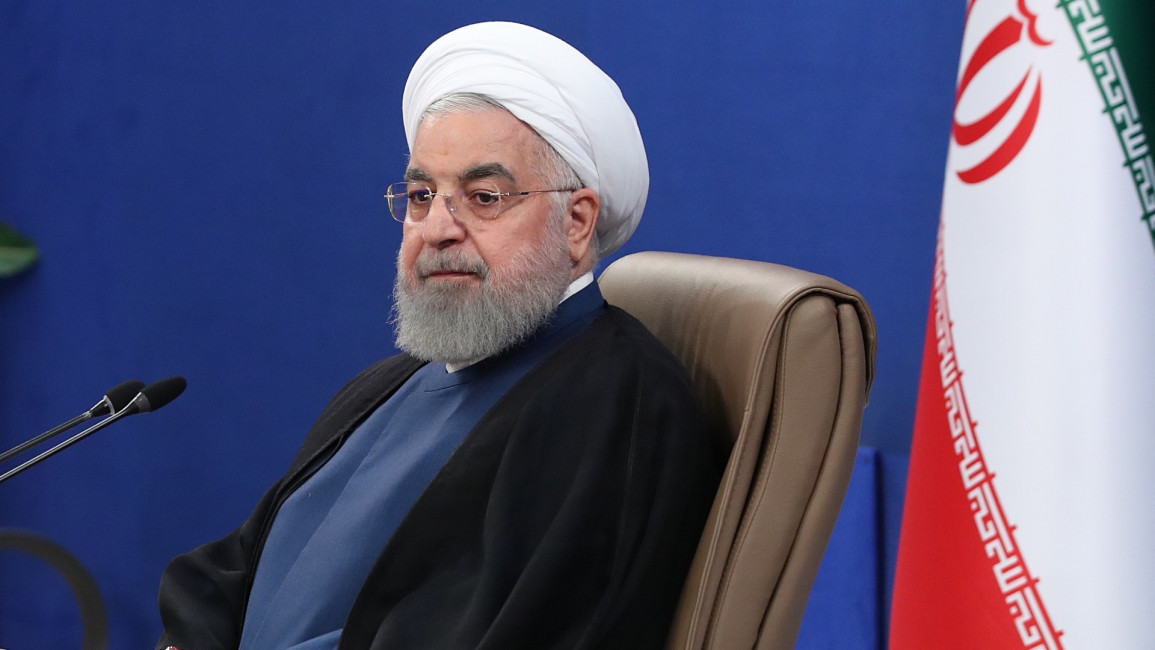Follow us on Facebook, Twitter and Instagram to stay connected
Damage to Iran nuclear site suspected to be Israeli operations - here's what we know
Accident or Israeli sabotage? A mysterious incident in the early hours of Thursday, July 2, badly damaged a building at Iran's Natanz nuclear complex and sparked speculation over the cause.
The incident came at the end of a week marked by two explosions in Tehran, including one near a military site.
Officials said the blasts were accidents, but many Iranians suspected covert Israeli operations were responsible.
Israel and the United States accuse their arch foe Iran of trying to build an atomic bomb - a charge the Islamic Republic has always denied.
Here's what we know about the incident:
What kind of building?
Iran's atomic energy agency first reported that an "accident" had damaged warehouses under construction at the Natanz site, some 250 kilometres (150 miles) south of Tehran, in a confusing statement on the morning after the incident.
There were no casualties, "no nuclear material (on site) and no potential of pollution," the agency's spokesman Behrouz Kamalvandi told state television.
The organisation released a photo of a damaged building: a long, one-storey brick structure with few openings, part of an exterior wall blackened by fire, a collapsed section of roof and doors that appeared to have been blown outwards.
State TV showed several images of the building's exterior, but none of the inside.
On Sunday evening, Kamalvandi acknowledged to the IRNA state news agency that the incident had caused "significant financial damage", without elaborating.
But he said the damaged building had been designed to produce "advanced centrifuges", hinting that their assembly had begun prior to the "accident".
What is the Natanz nuclear complex?
The complex is central to Iran's nuclear programme and is kept under very tight security.
Under the terms of its 2015 nuclear accord with world powers, Tehran had agreed to cap its enrichment of uranium - measured by the presence of fissile isotope Uranium-235 - to 3.67 percent.
It also limited the number of so called first-generation enrichment centrifuges to 5,060.
But a year after Washington unilaterally abandoned the pact and reimposed crushing sanctions, Iran began progressively stepping away from its commitments.
Since mid-2019 it has enriched uranium to 4.5 percent - reactor-grade but still far from the 90 percent required for military use.
|
Iran has also announced that it is working on developing more efficient centrifuges, without limits.
Accident or sabotage?
On Friday, Iran's Supreme National Security Council announced that the "cause of the accident" at Natanz had been "accurately determined".
But it declined to release details, citing security reasons.
On the evening of July 2, IRNA published an editorial warning Iran's arch-foes against hostile actions, saying unnamed Israeli social media accounts had claimed the Jewish state was behind the incident.
The editorial warned Israel and the US against any attack on Iran's "security" and "interests".
A Twitter account linked to an Israeli analyst had claimed in Arabic on July 1 that Israel had attacked an Iranian uranium enrichment plant.
The BBC's Persian service, which Iranian authorities consider hostile, said it received a statement "hours before" the incident from a group called the "Homeland Cheetahs" who claimed responsibility.
They claimed to be "dissidents present in Iran's security apparatus" and said the location was targeted as it was not "underground" and that therefore the alleged attack could not be denied.
Iran's civil defence chief, Brigadier General Gholam Reza Jalali, told state TV on Thursday night that any proven cyberattack against Iran would elicit "a response".
Israel's Defence Minister and Alternate Prime Minister Benny Gantz stayed ambiguous on the events.
"Iran is aiming for nuclear [weapons], we can't let it get there," he said Sunday.
He however added that "not every event taking place in Iran is necessarily connected to us".


![Minnesota Tim Walz is working to court Muslim voters. [Getty]](/sites/default/files/styles/image_684x385/public/2169747529.jpeg?h=a5f2f23a&itok=b63Wif2V)




![Debris near Rafic Hariri International Airport [Getty]](/sites/default/files/styles/image_330x185/public/2176162423.jpeg?h=a5f2f23a&itok=MCSK9mkM)
![An Israeli air strike on Jabalia killed teenage journalist Hassan Hamad [Screengrab/X]](/sites/default/files/styles/image_330x185/public/2024-10/hassan%20hamad1.jpg?h=c12e0b96&itok=Rd_dyCVp)
